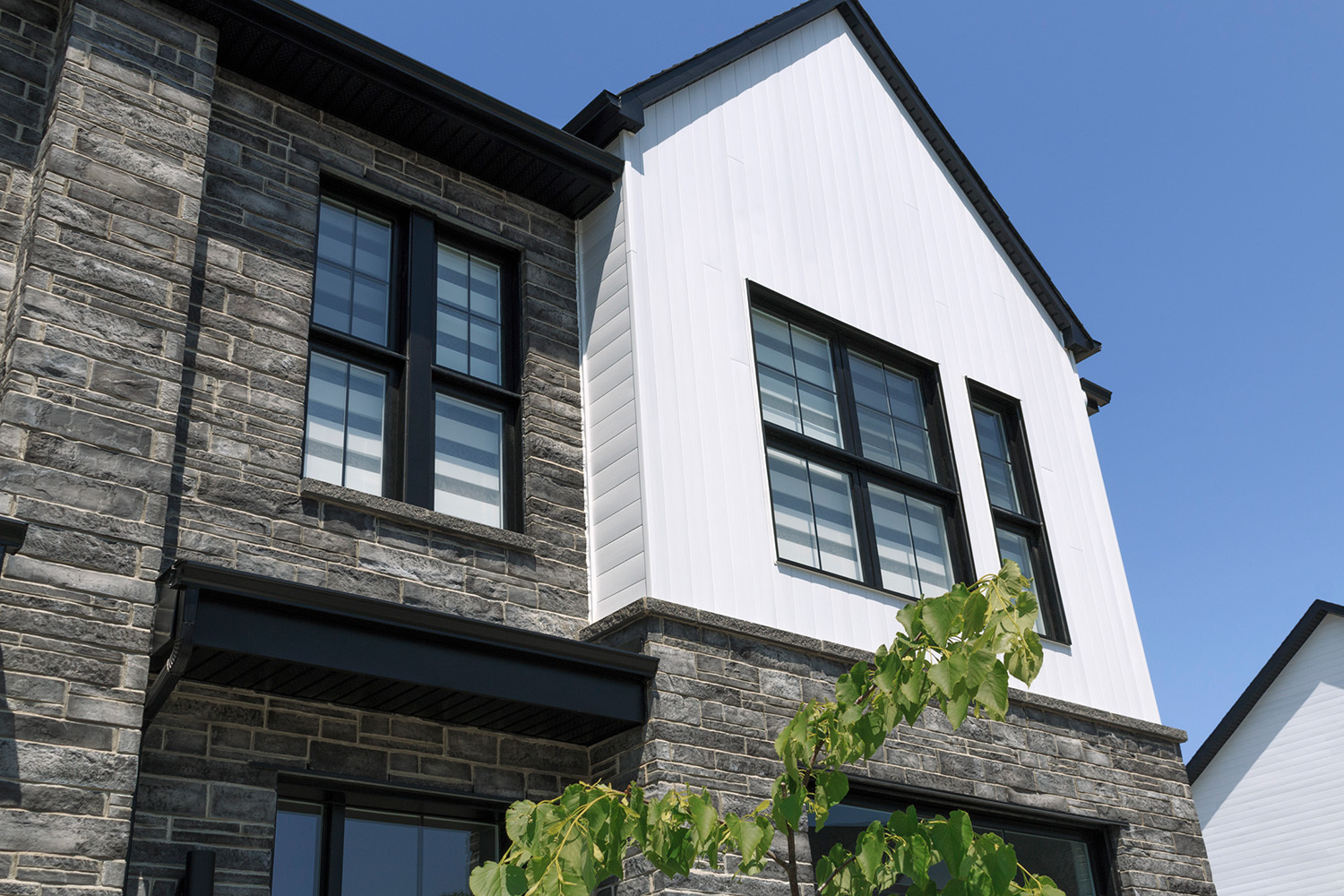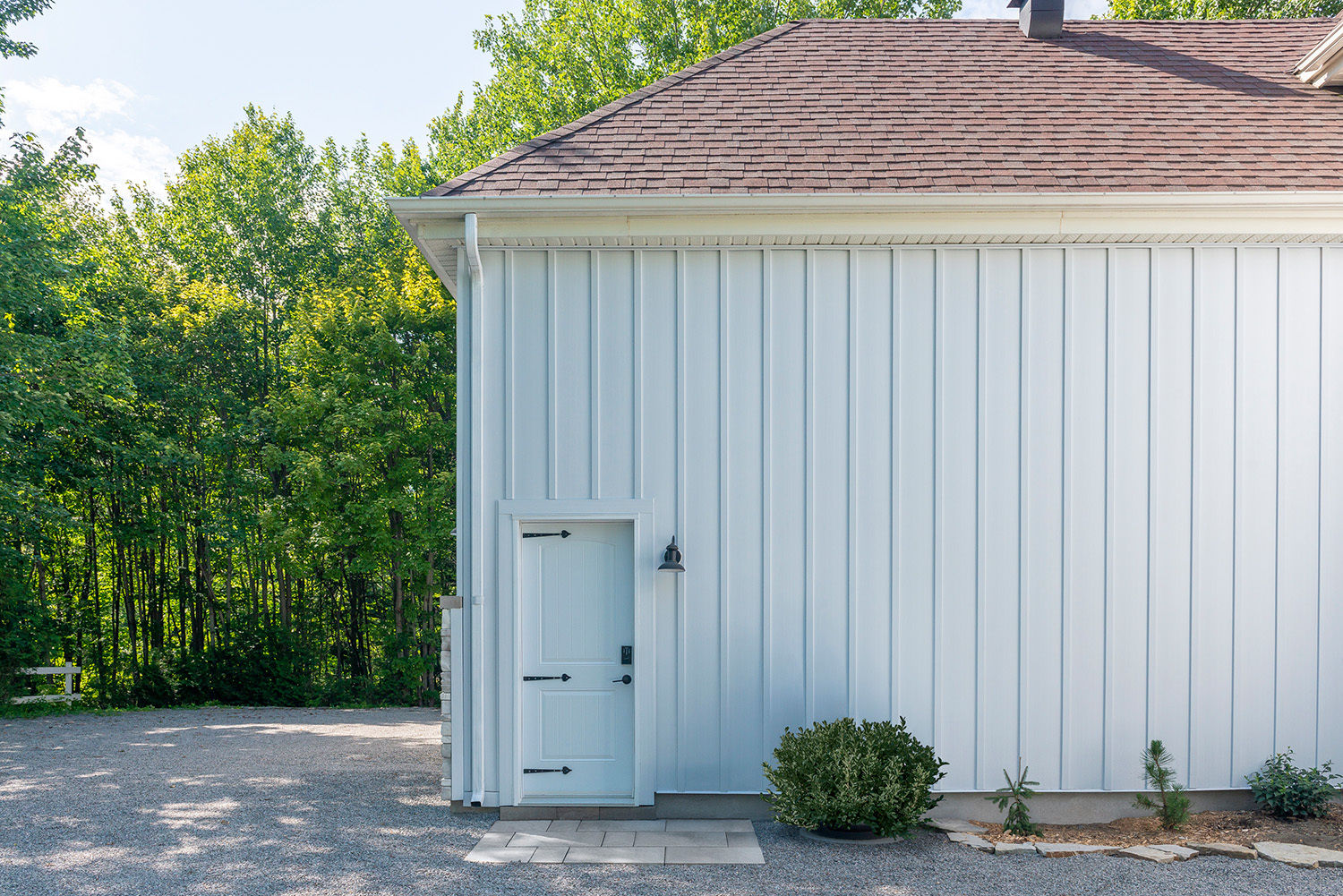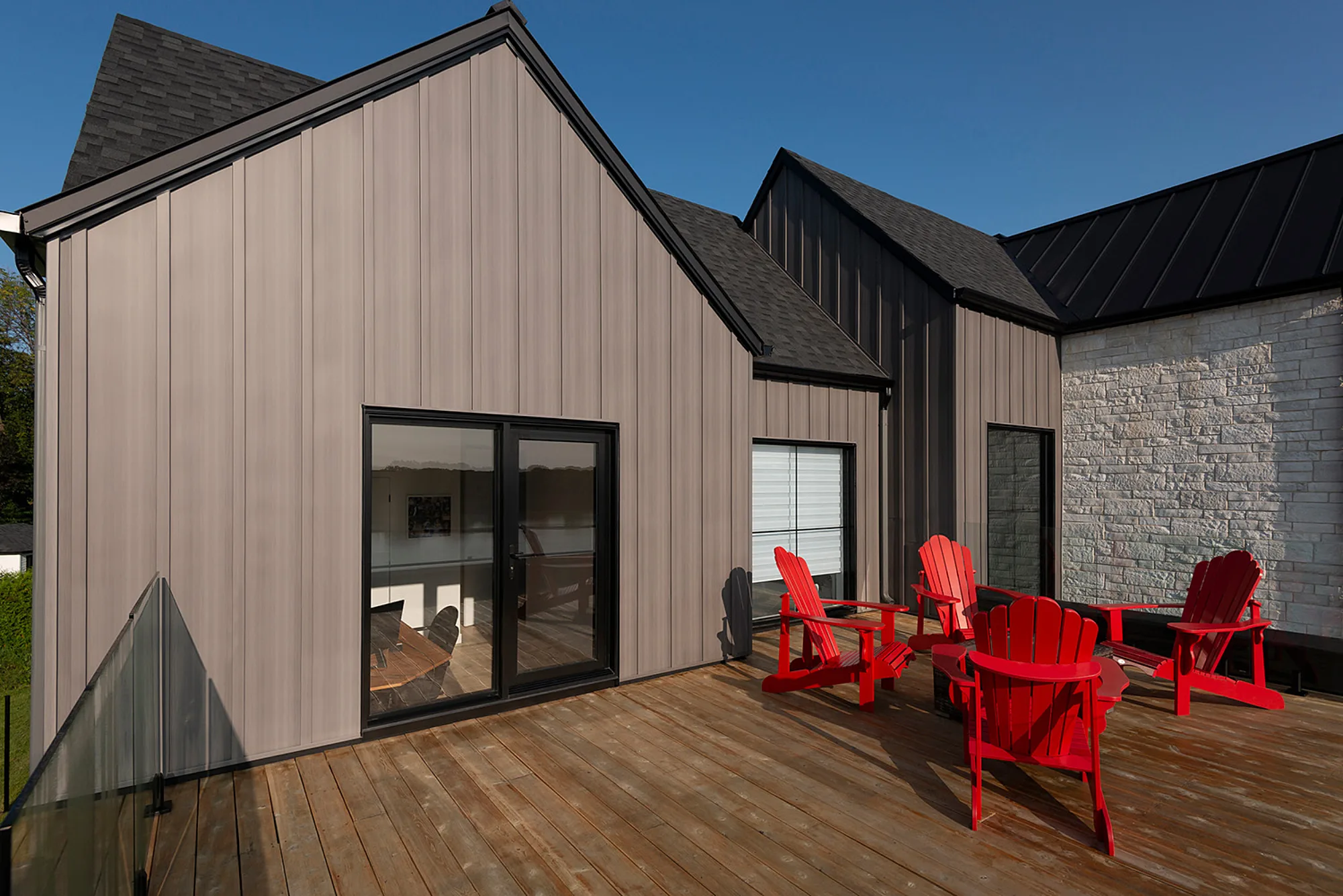When it’s time to renovate or build a home, choosing the right exterior siding is one of the most important decisions you’ll make. It impacts not only the appearance of the property but also its durability, energy performance, maintenance, and long-term value.
In 2025, two materials stand out for residential projects: vinyl and aluminum. In this article, discover a clear comparison to help you determine which exterior siding is best suited for your home.
Why is choosing exterior siding so important?
Selecting exterior siding for your home is no longer just about appearance. It’s a strategic decision that impacts the building’s durability, energy efficiency, required maintenance over time, and even resale value.
Both vinyl and aluminum offer distinct advantages, but also some limitations. By working with experienced professionals, you gain personalized guidance, quality installation, and most importantly, siding that matches your lifestyle, climate, and long-term vision.

Aluminum siding: a durable and stylish choice
Known for its longevity and modern appearance, aluminum siding is an excellent choice for homeowners looking to invest in a durable, weather-resistant, and eco-friendly material. Increasingly popular in Quebec, it is suitable for both new constructions and façade renovation projects.
Advantages of Aluminum
One of aluminum’s main strengths is its exceptional durability. This material can maintain its appearance and performance for over 40 years, even in extreme weather conditions. It easily resists UV rays, humidity, frost, strong winds, and temperature fluctuations. It doesn’t rust, rot, or warp, making it a strong ally for harsh Quebec winters.
Modern and elegant, aluminum comes in a wide variety of textures, finishes, and colors. Architectural panels, such as those offered by Rialux, add a high-end touch to a façade while guaranteeing long-term strength.
Another significant benefit is ease of installation. Lightweight and easy to handle, aluminum reduces installation time and labor costs. Its light weight also minimizes the stress placed on the building structure, lowering the risk of sagging or cracks.
When it comes to maintenance, aluminum requires nothing more than a simple annual rinse with water to maintain its appearance. Manufacturers typically provide solid warranties ranging from 5 to 40 years. At Rialux, for example, certain collections come with a 25-year warranty covering color, weather resistance, and manufacturing defects.
Finally, aluminum is a 100% recyclable material that can be reused endlessly without losing quality. Its full life cycle has a low environmental impact, making it an option that is not only aesthetic and durable but also environmentally responsible.

The Disadvantages of Aluminum
The main barrier to purchase remains the price of aluminum siding, which is higher than that of vinyl. Depending on the product and finish chosen, costs typically range between $3 and $23 per square foot. For projects with a tighter budget, Rialux’s Bosco collection offers a good compromise, replicating the look of wood while maintaining the technical benefits of aluminum.
Another factor to consider is that although aluminum is extremely durable, it is still a relatively malleable metal. This means it can dent or scratch if it’s not thick enough or if subjected to significant impact. This is why it’s important to choose premium-quality panels designed to withstand impacts such as those from Rialux, which meet the industry’s strictest standards.
Vinyl siding : an economical and functional solution
Often chosen for its affordability and ease of maintenance, vinyl siding remains a popular option for homeowners who want to renovate or build on a controlled budget without compromising the exterior look of their home.
The Advantages of Vinyl
One of vinyl’s main attractions is its affordability. Less expensive than wood, brick, or stone, it is available in a wide range of colors, textures, and finishes that allow homeowners to personalize their home’s façade at a lower cost. In Quebec, vinyl siding prices generally range from $2.50 to $14.50 per square foot, depending on product quality.
In addition to its accessibility, vinyl offers good resistance to Canada’s varied climate conditions. It performs well against sun, rain, wind, and snow, while being relatively resistant to humidity, mold, and insects. Properly installed, this makes vinyl a durable material that can last between 20 and 40 years.
Thanks to its light weight and flexibility, vinyl is also easy to install, which helps reduce labor costs. It is suitable for both new constructions and renovation projects.
Another strong point: maintenance is minimal. A simple wash with soapy water and a soft brush is enough to restore its shine. This low maintenance requirement is one of the biggest arguments in favor of vinyl.
Finally, when combined with proper insulation, vinyl can help improve a building’s energy efficiency. Its manufacturing process also consumes less energy compared to other materials, making it an attractive option for those looking to reduce their environmental footprint.
The Disadvantages of Vinyl
Despite its many advantages, vinyl does have certain limitations. It is less efficient in extreme conditions, such as very high temperatures or heavy physical impacts. Over time, the material can crack, warp, or fade, especially if not inspected regularly.
In addition, warranties offered by manufacturers are often limited to manufacturing defects and do not cover damage caused by weather or improper installation. Damaged or aged vinyl siding can reduce a home’s curb appeal and negatively impact resale value.
Vinyl is therefore an affordable, easy-to-install, stylish, and durable option, but it requires careful monitoring to avoid deterioration and fading.
How to make the right choice for your project?
Thanks to today’s high-performance materials, there’s no longer a need to compromise between style, durability, and performance. Whether you’re renovating a home’s exterior façade or building a commercial property, siding must be adapted to your needs, your budget, and your environment.
Vinyl remains a popular option for its affordable price, ease of installation, and minimal maintenance. Aluminum, on the other hand, stands out for its strength, longevity, premium look, and eco-friendly qualities.
Whatever your choice, the most important factor is to work with qualified professionals who can guide you through each step. Proper installation is essential to maximize the performance and lifespan of your siding.
Visualize your façade in just a few clicks with our virtual design tool
Before making your choice of exterior siding, it can be helpful to preview the final look on a home. That’s exactly what the virtual design tool developed by Rialux makes possible.
Designed to support professionals and their clients, this tool allows you to simulate the appearance of siding products in different exterior settings. In just a few clicks, you can explore color and texture combinations that pair seamlessly with Rinox masonry products.
Even though purchases are made through our distributor network, this tool is a valuable resource to guide your decision and make discussions with your contractor or architect easier.
Trust the expertise of Rialux, a Rinox Group brand, to transform your façade with durable, stylish products built for the realities of the Quebec climate.
